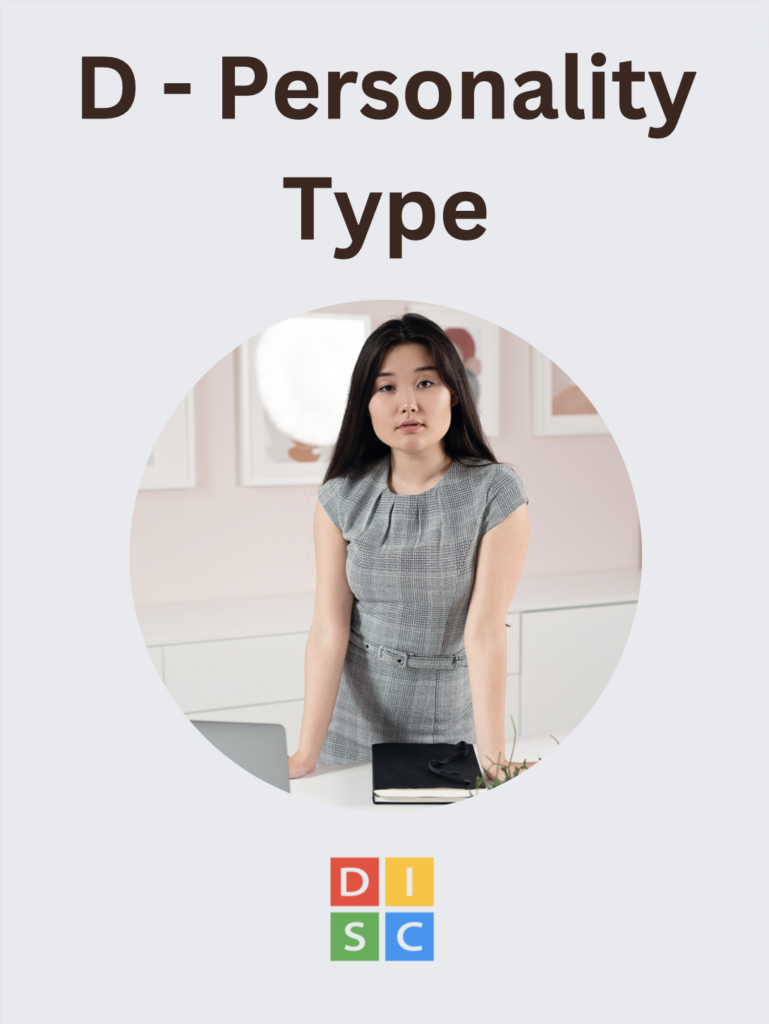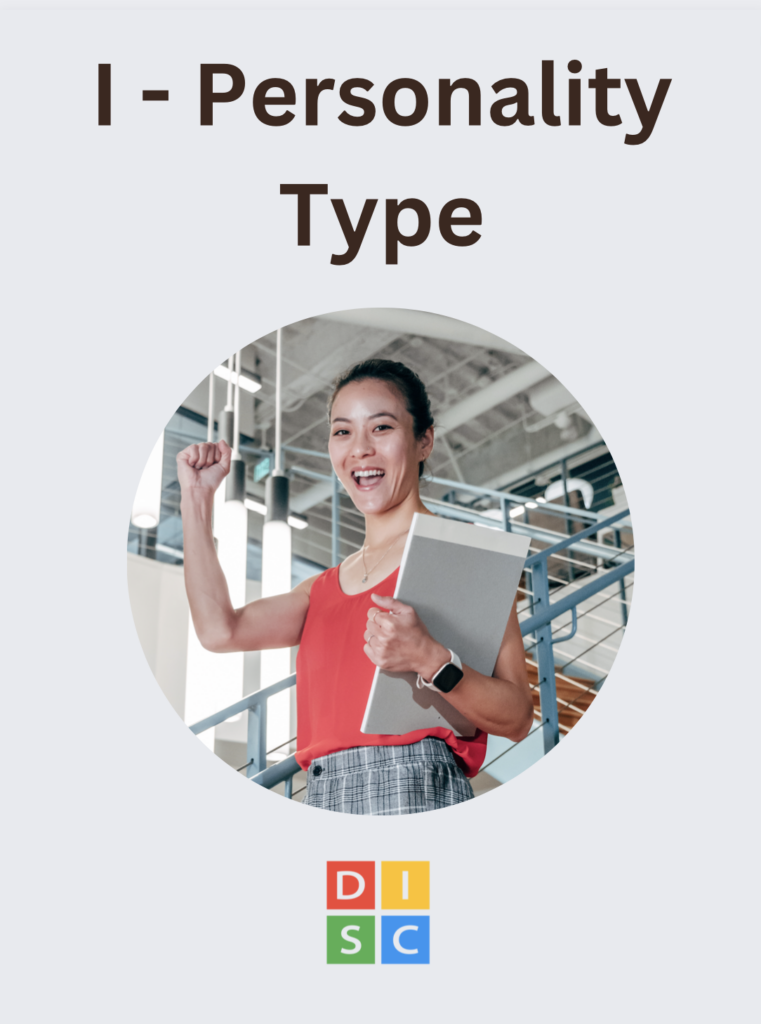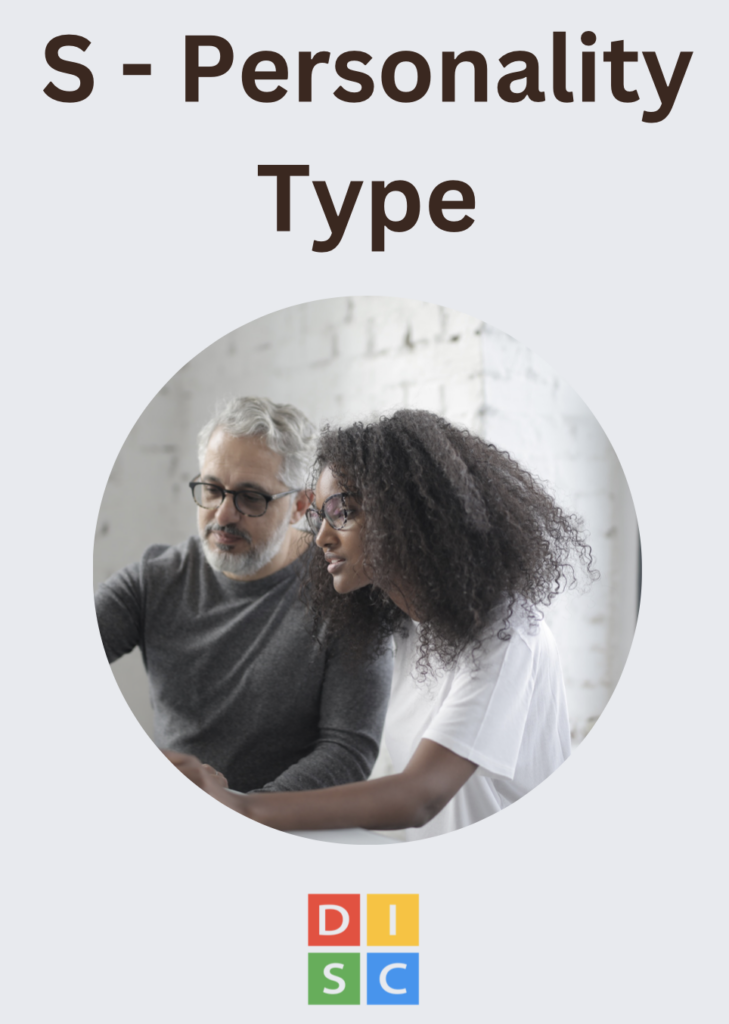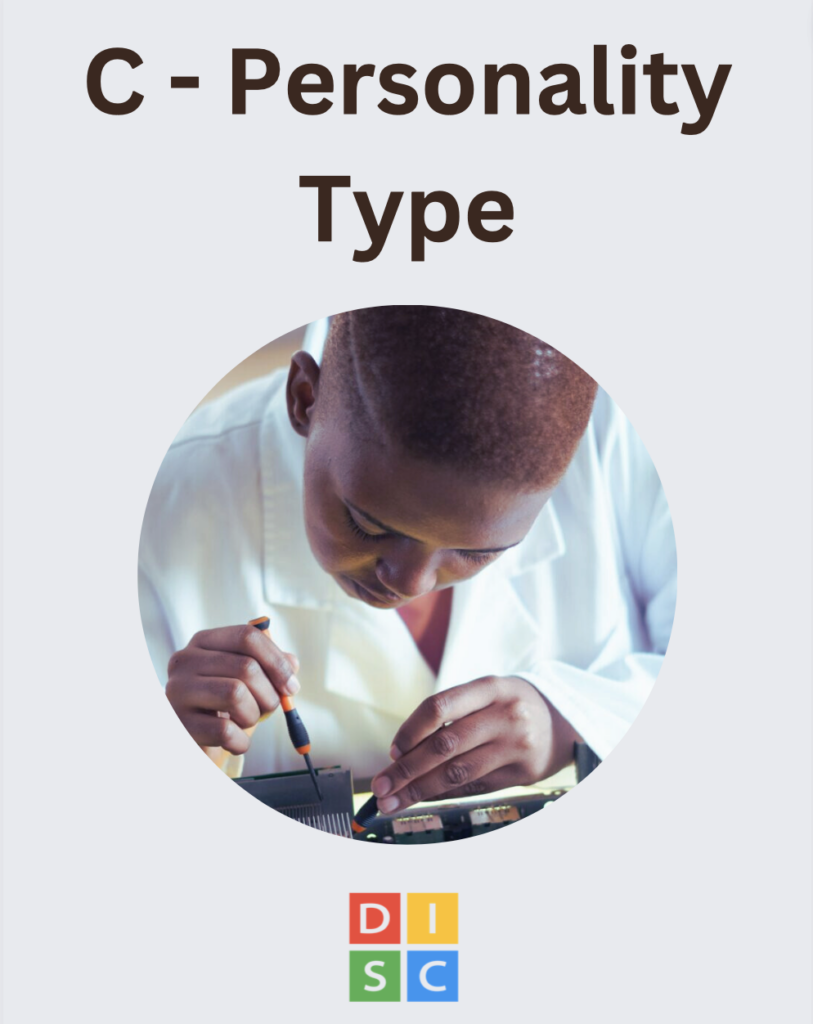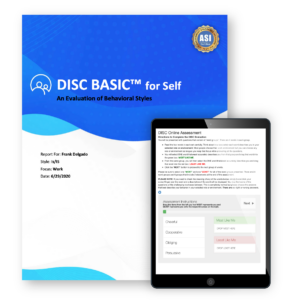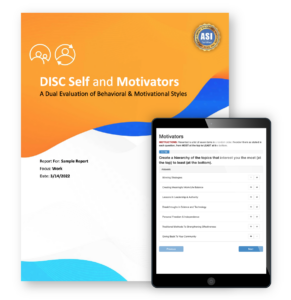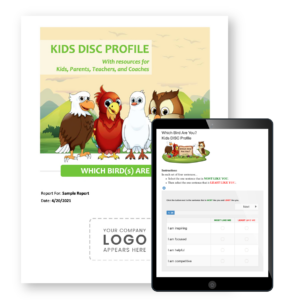DISC improves Culture Relationships Managers EQ Leadership Teamwork Sales
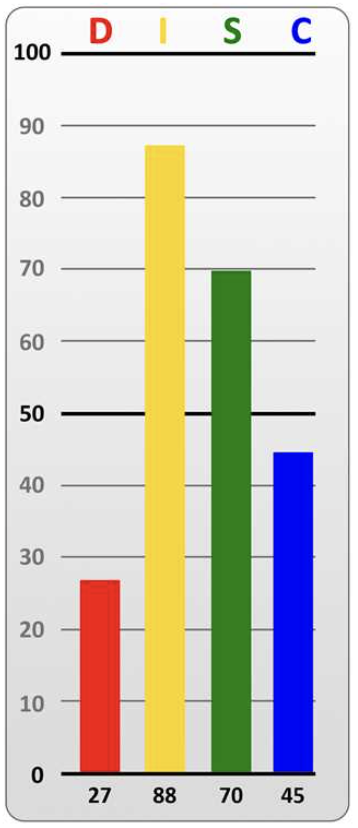
DISC is a non-judgmental survey that helps a person understand their behavioral preferences and personality style. It is a personal development tool aimed at improving an individual’s self-awareness.
Additionally, this tool is used to help individuals adapt their communication styles. Anyone can learn to adapt their behaviors to manage better, sell, connect, and relate to anyone they are interacting with. Organizations and teams use this tool to build trust and deepen interpersonal relationships. Individuals can use it to better connect with anyone (including family!).
You are not defined by a single style DISC Style. Rather, your style is a blend of these four personality types:
Dominance (D-Personality Type)
Direct, decisive, independent and to the point, and results-oriented. Often described as strong-willed, D Personality Types enjoy challenges and immediate results. On the DISC Model they are fast pace and lean towards the skeptical/challenging spectrum.
When communicating with D Personality individuals, they appreciate skepticism but will expect that you tie any new ideas to the task at hand. They are natural leaders and will take charge when they feel things aren’t getting done.
Influence (I-Personality Type)
Optimistic, social, and outgoing. I-Styles enjoy being on teams, sharing openly, and entertaining others. Those with the I-Style are known to be persuasive.
When communicating with I Personality individuals, keep the conversation light and engage in their enthusiasm. Allow the conversation to be unstructured and make sure, above all else, you are friendly.
Steadiness (S-Personality Type)
Team players, cooperative and supportive. S-Styles prefer working in a stable environment. They are good listeners and prefer to avoid conflict.
When communicating with S Personality individuals, don’t be surprised if it seems they may be too open to new viewpoints. In an effort to avoid conflict, they will maintain an open attitude and only push back when views or opinions are contradictory to their values.
Conscientiousness (C Personality Type)
Cautious, concerned, and analytical. They are focused on quality, details, and accuracy.
Often, the term ‘detailed oriented’ is associated with the C Personality Type. However, this DISC Style engages with the details because of their high need to be accurate and to be precise in the work that they product.
The DISC Basic profile is validated to help train and develop individuals in personal development, leadership, management, and customer service capacities.
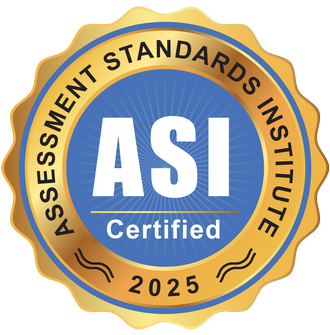
The Assessment Standards Institute (ASI) reports that the overwhelming majority of assessments sold today lack the studies & reporting to verify their accuracy and fairness. Of the small minority which does claim this reporting, most of those were conducted privately – not openly by an objective and qualified third party.
Each report is independently researched for validity, reliability, and disparate impact reporting that meets APA, EEOC, AERA, and NCME standards for excellence and professional compliance.
How does the it work?
Millions of people have taken a DISC assessment because the model is simple to understand. Compared to other tools, DISC becomes a language that anyone can use to help explain their behavior and the behavior of their peers. It allows for a person to describe their behavioral preferences without being judged for them.
While DISC is a simple tool, it contains a number of complex insights that users are able to carry with them and use throughout any day. When learners talk about a person with a ‘D Style’ – that simple statement carries a lot of information and shared experiences. Through this language, learners are able to quickly identify a person as being fast-paced when making decisions, direct, and will likely want to ensure tasks are completed on-time.
Teams and organizations use DISC and the language of the to improve:
- Workplace Culture
- Communication
- Interpersonal Relationships
- Team Building
Whether an individual recognizes it, we all have a desire to be understood. This tool acts as a decoder – anyone can use it to learn why a person speaks or behaves in a certain way. The impact of this understanding in the workplace can be felt through both the team or organization dynamics and along with increased financial successes.
Request a demo or ask us a question about DISC!
"*" indicates required fields
What does It Measure?
At its core, the DISC assessment measures two dimensions of a person. There are many sides to a single person. However, these two dimensions were found to reflect the most fundamental aspects of our behaviors.
You can understand the basis of the model by asking yourself these questions:
Moderately or Fast-Paced?
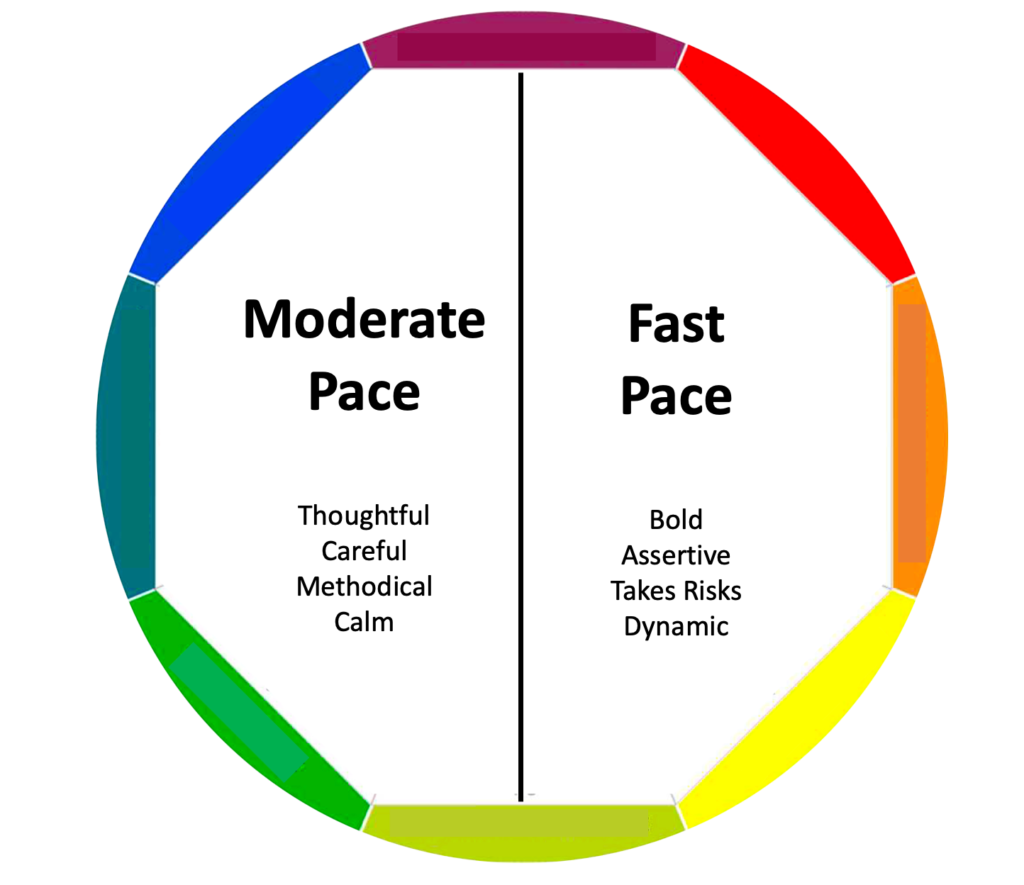
Do you work at a steady pace? Do you tend to ensure you have all of the details before making a decision?
Do you work at a fast pace? Do you tend to make quick decisions and see the benefits in taking risks?
Skeptical or Agreeable?
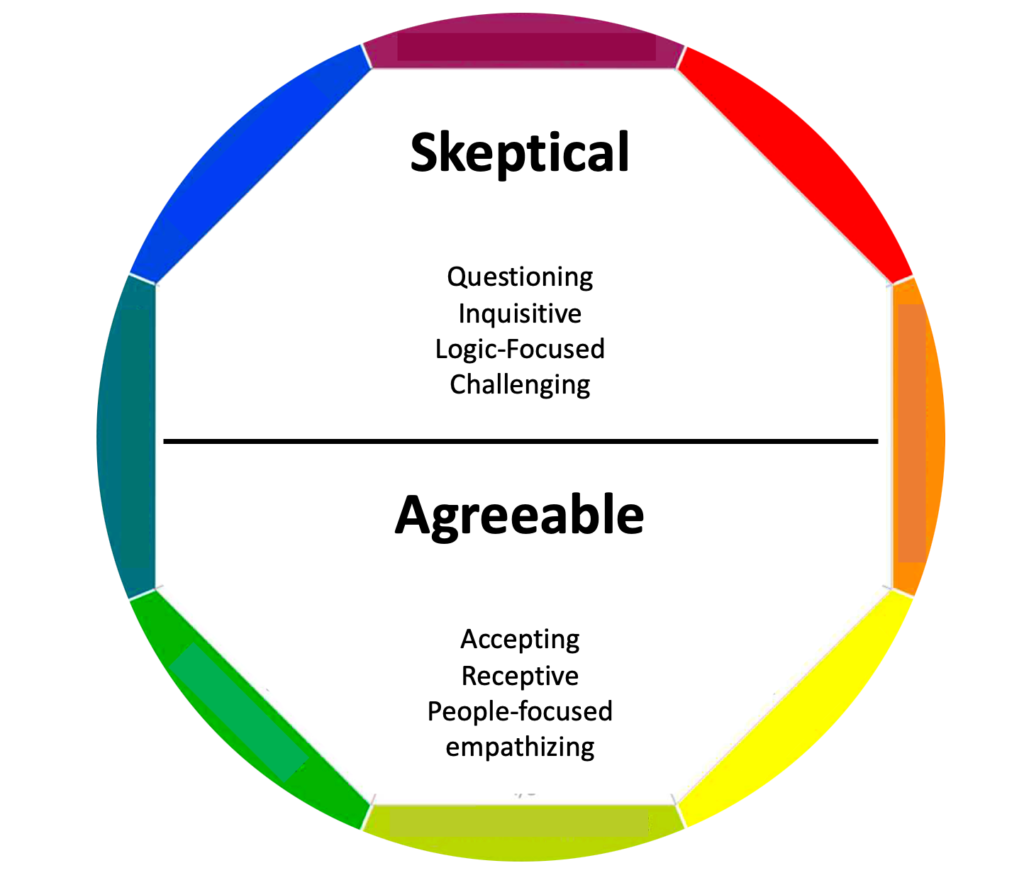
Do you tend to challenge new ideas to find their flaws and emphasize logical responses?
Are you open to hearing ideas and focused on your connections to the people around you?
As an example, do you know someone who is very social?
Perhaps, if there is a work happy-hour you know they will be the first ones there. You might enjoy their company because they are easy to talk to. Potentially, they were one of the first of your co-workers to strike up a conversation with you on your first day of work. When you interact with them, they usually make you feel accepted. They rarely question your ideas like some of your other co-workers. You appreciate them because they were quick to learn something about you, and they actually remembered it!
Using the two graphs above as a reference, this person exhibits an I-Style (or Influence Style). This person is:
- Assertive/bold (The first to an event and meet someone new)
- People focused/Receptive (They don’t challenge your ideas, and they make you feel accepted)
All of us have the capacity to be social and friendly. However, those with the I-Style naturally exhibit this behavior. They seem at ease in any social situation. Actually, it seems like they seek it out.
DISC helps us identify our preferred behaviors. Furthermore, it helps us understand why we enjoy certain jobs or working with a specific person.
How to get started using it
DISC Assessments are sold based on application. There is a specific assessment for leaders, teams, individuals, church groups, and even children.
Choose from all of our assessment tools and find the report that matches the application area you are looking to improve.
